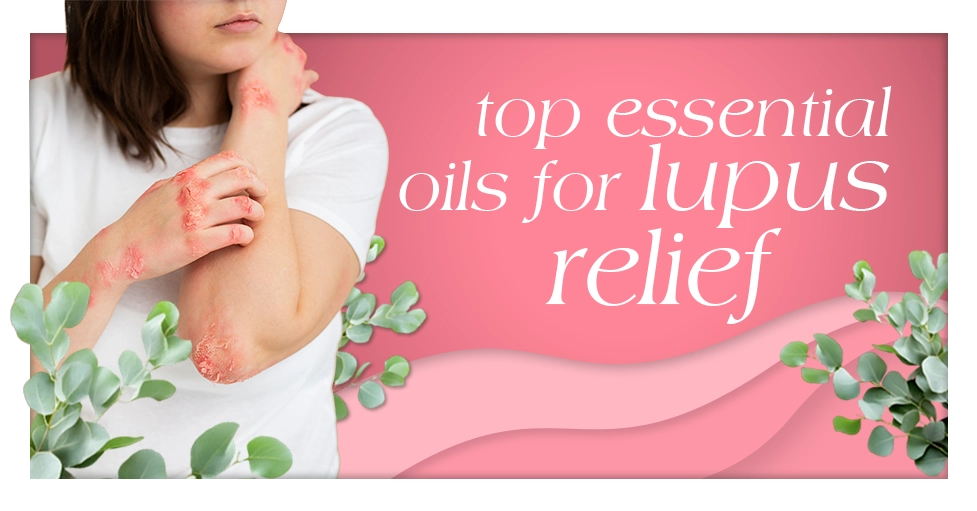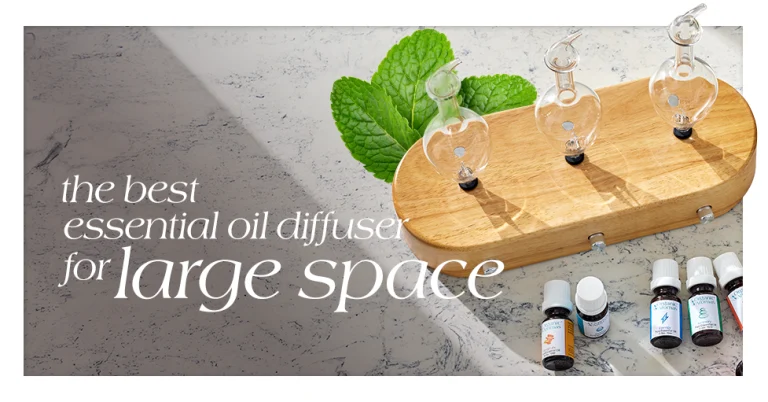Top Essential Oils for Lupus Relief and Management
Managing lupus, a complex autoimmune disorder, requires a multifaceted approach. While modern medicine remains central to treatment, there is growing recognition of the value of complementary therapies in enhancing overall well-being and managing symptoms. Among these therapies, essential oils have emerged as a potent tool that can be integrated into a holistic care plan for lupus management.
Essential oils like Frankincense, Lavender, Chamomile, and Eucalyptus offer natural, supportive benefits that can help alleviate some of the most challenging symptoms of lupus, including inflammation, joint pain, and psychological stress. This article delves into the ways these essential oils can be safely and effectively incorporated into your lupus management strategy, providing both physical relief and emotional support as part of a comprehensive approach to living well with lupus.
Essential Oils for Lupus: Nature’s Remedies for Relief and Management
- Essential oils such as frankincense, lavender, chamomile, and eucalyptus can provide relief from lupus symptoms like inflammation, joint pain, and psychological stress.
- Proper methods of applying essential oils, like using diffusers, topical applications, and bath oils, are crucial for ensuring safety and effectiveness in managing lupus symptoms.
- Consultation with healthcare professionals is essential before incorporating essential oils into a lupus management plan, as some oils can trigger inflammation or irritation.
Understanding Lupus and Its Symptoms

Lupus, particularly systemic lupus erythematosus (SLE), is a complex autoimmune disorder where the immune system mistakenly attacks the body’s own tissues, including the nervous system, causing widespread inflammation and tissue damage. This inflammatory condition, one of many autoimmune diseases, is characterized by fatigue, joint pain, and chronic pain due to painful skin rashes. Cutaneous lupus erythematosus, a form of lupus that affects the skin, shares some similarities with SLE. The exact causes of lupus are not entirely understood, but a combination of genetic factors, environmental triggers, and abnormal immune responses are believed to play a role.
People with lupus often experience a range of symptoms that can affect multiple organs, including the skin, kidneys, heart, eyes, muscles, and joints. Common lupus symptoms include arthritis, fevers, hair loss, swollen glands, and headaches. Lupus flares are notoriously unpredictable, varying from mild to severe, and can lead to serious complications such as lupus nephritis, which causes kidney damage, and cardiovascular issues like atherosclerosis and coronary artery disease.
Diagnosing lupus can be quite challenging due to the variability of its symptoms. The lupus diagnosis process typically involves a combination of blood and urine tests, a thorough review of signs and symptoms, and physical examinations. This complexity is compounded by the fact that lupus symptoms can mimic those of other autoimmune disorders, making it difficult to diagnose lupus accurately. Additionally, lupus is more prevalent in women, particularly those of African, American Indian, and Asian descent.
Grasping the wide range of lupus symptoms and the difficulties in its diagnosis is key for anyone aiming to control the condition effectively. Recognizing early signs and seeking prompt medical advice can lead to better management of the condition and help mitigate its impact on daily life.
How Essential Oils Can Help with Lupus
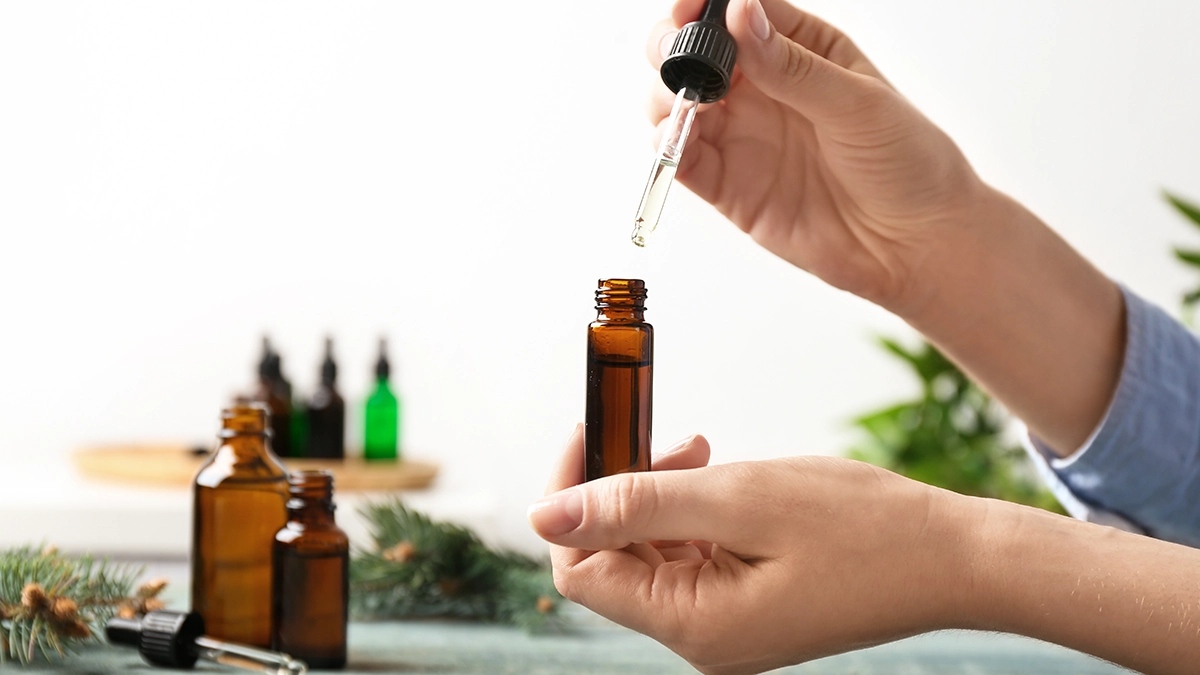
Essential oils have been cherished for centuries in traditional medicine for their therapeutic properties. Today, these natural extracts are gaining recognition for their potential benefits in managing chronic conditions like lupus. Essential oils such as:
- Frankincense
- Lavender
- Chamomile
- Eucalyptus
Nonsteroidal anti-inflammatory drugs are particularly noted for their effectiveness in alleviating lupus symptoms.
Essential oils offer a holistic option to those with lupus, aiming to manage the symptoms. Some essential oils that can help with lupus symptoms include:
- Frankincense: known for its anti-inflammatory properties, it can help reduce inflammation associated with lupus.
- Eucalyptus: also anti-inflammatory, it can help reduce inflammation and provide relief.
- Lavender: known for its calming and soothing properties, it can alleviate psychological stress and muscle stiffness often experienced by lupus patients.
- Chamomile: also calming and soothing, it can help with muscle stiffness and promote relaxation.
These oils not only aid in physical relief but also enhance mood and promote relaxation, which is vital for overall well-being.
Although not a cure, essential oils when used correctly can provide notable relief and complement conventional lupus treatments. As an essential oil expert and certified aromatherapist with 30 years of experience, I have seen how holistic natural options can help in managing lupus. Always remember to consult with healthcare professionals before incorporating essential oils into your lupus management plan.
Top Essential Oils for Lupus Relief
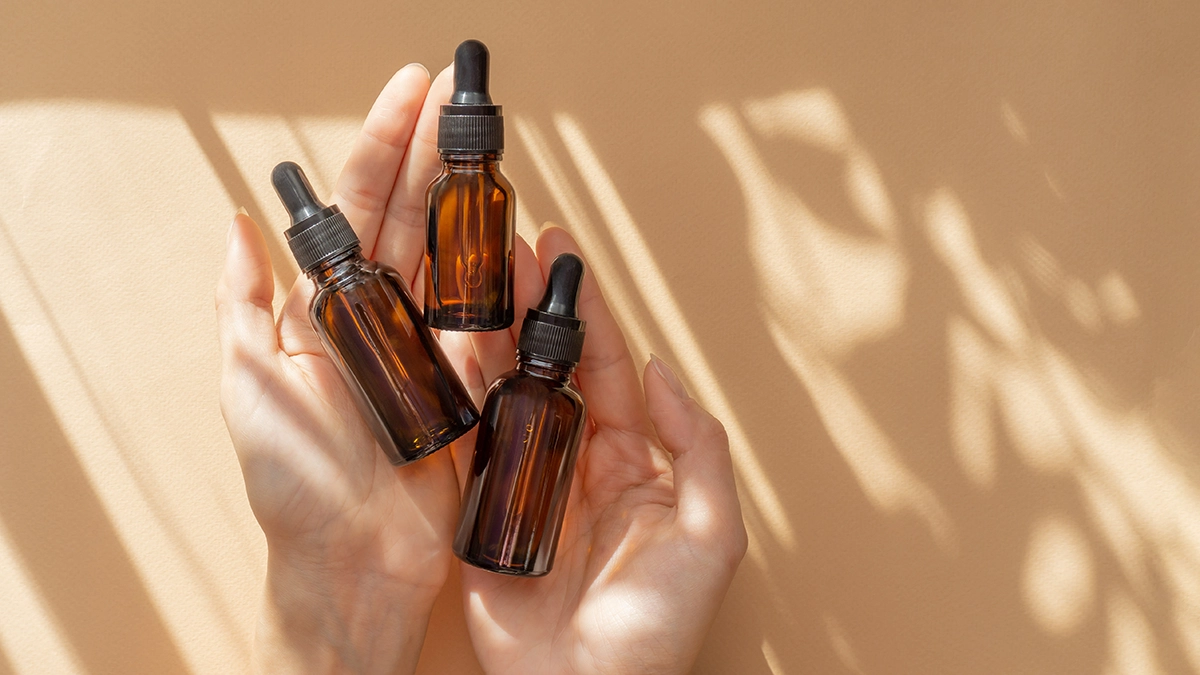
Out of the multitude of essential oils available, the following oils prominently stand out due to their distinct benefits for lupus relief:
- Frankincense: known for its anti-inflammatory properties
- Lavender: helps alleviate joint pain and promotes relaxation
- Chamomile: reduces inflammation and soothes skin irritations
- Eucalyptus: relieves muscle and joint pain, and promotes respiratory health
Each of these oils offers unique properties that can help manage various lupus symptoms, from reducing inflammation to alleviating joint pain and promoting calmness.
We will delve into the details of each of these essential oils, starting with the essential oil initially.
Frankincense Essential Oil
Frankincense essential oil is renowned for its powerful anti-inflammatory properties, making it a valuable ally in reducing the inflammation associated with lupus. As an anti inflammatory essential oil, it is derived from the resin of the Boswellia tree and has been used for centuries in traditional medicine to support immune function and reduce swelling. Integrating frankincense essential oil into their routine can aid lupus patients in managing their symptoms and reducing the frequency of flare-ups.
In addition to its anti-inflammatory benefits, frankincense essential oil is also known for its ability to relieve stress and enhance mood. Living with lupus often involves dealing with significant psychological stress, and the calming effects of frankincense can provide much-needed emotional relief. Whether used in an aromatherapy diffuser or diluted with a carrier oil for topical application, frankincense offers a holistic approach to managing lupus.
Lavender Essential Oil
Lavender essential oil is widely celebrated for its calming effects, which can significantly benefit lupus patients experiencing anxiety and depression. The aromatic properties of lavender help promote relaxation and improve sleep quality, which are crucial for managing lupus symptoms. Adding lavender to daily routines, be it through an aromatherapy diffuser or as part of a bedtime ritual, can foster a sense of calmness and well-being.
Beyond its calming effects, lavender essential oil is also beneficial for treating skin rashes associated with lupus. Its soothing properties help reduce irritation and promote healing of the skin. Applying a diluted lavender blend to affected areas can provide relief from the itchy and painful rashes that often accompany lupus flares.
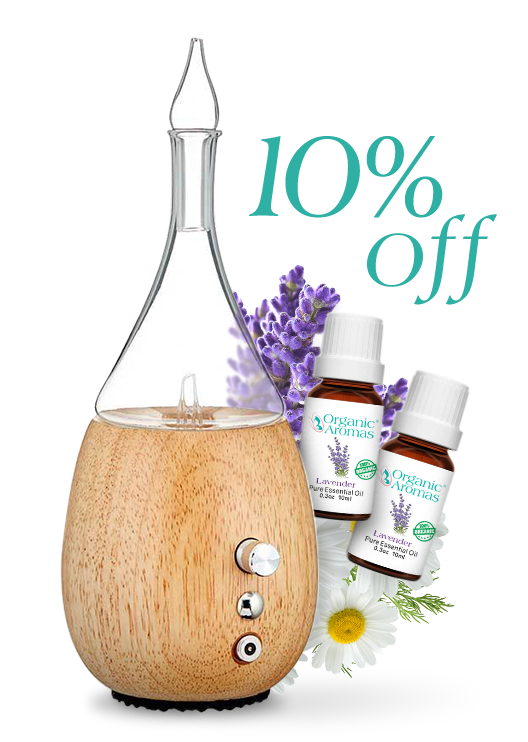
Join Now and Get a Coupon for 10% Off!
Chamomile Essential Oil
Chamomile essential oil is known for its soothing properties, making it an excellent choice for alleviating muscle stiffness and joint pain, common symptoms of lupus,. The gentle nature of chamomile makes it suitable for individuals with sensitive skin, a frequent concern for those with lupus. Used in a massage blend or added to a warm bath, chamomile can help reduce tension and promote relaxation.
The anti-inflammatory properties of chamomile also make it effective in managing lupus symptoms. Whether inhaled through a diffuser or applied topically, chamomile essential oil can help soothe the body and mind, offering holistic relief to lupus patients.
Eucalyptus Essential Oil
Eucalyptus essential oil is particularly effective in relieving respiratory issues, which can be a symptom in some lupus patients. Its anti-inflammatory properties also provide additional relief, helping to reduce the inflammation associated with lupus. However, it is crucial to use eucalyptus with caution and seek professional advice before incorporating it into a lupus management plan.
The potent nature of eucalyptus essential oil requires careful handling to prevent adverse reactions. Consulting with a healthcare professional ensures that eucalyptus is used safely and effectively, maximizing its benefits without risking potential side effects.
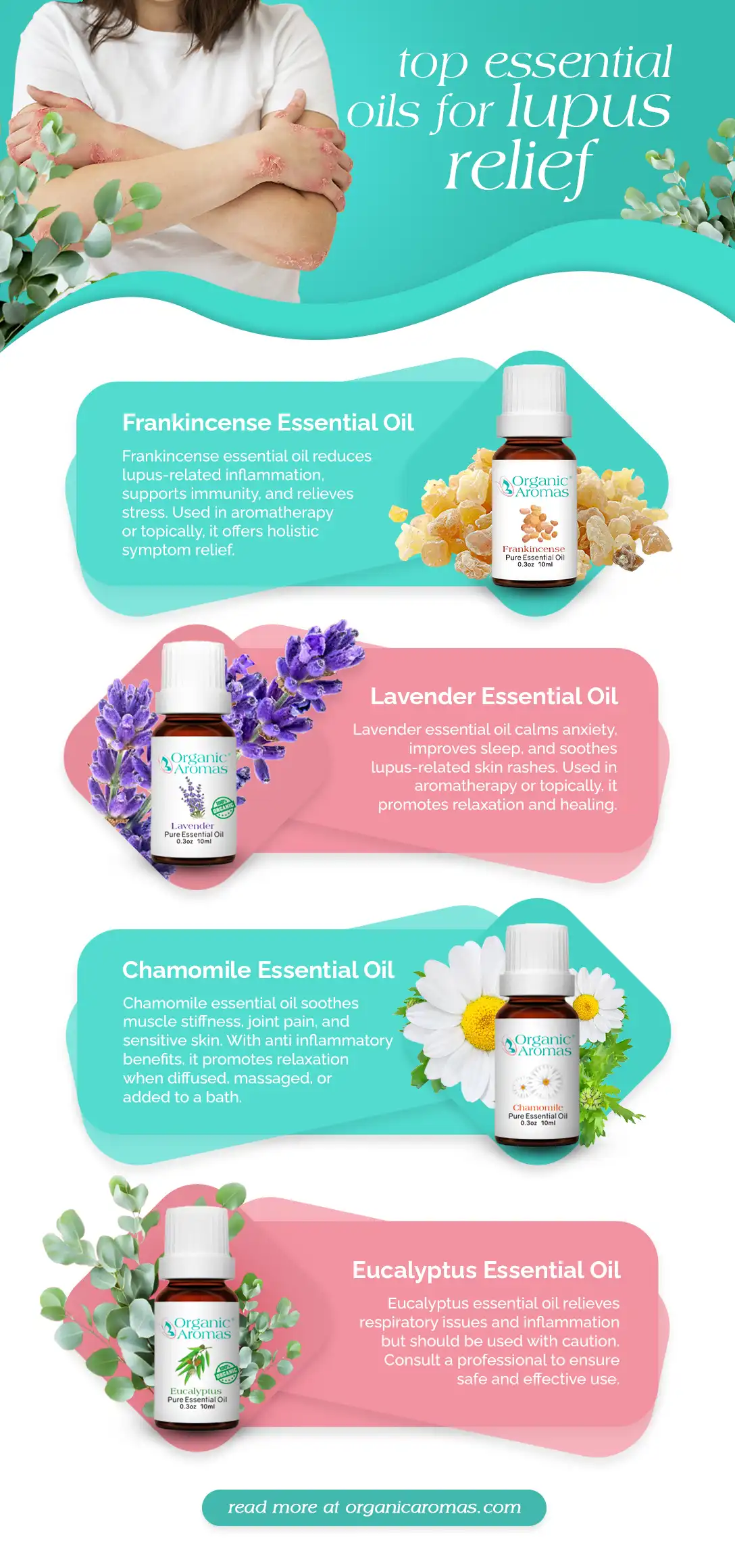
Safe Application Methods for Essential Oils

Safely applying essential oils is of utmost importance, particularly for those with lupus. Essential oils should always be diluted with a carrier oil to prevent skin irritation and ensure safe usage. Patch testing is recommended before using essential oils extensively on the skin.
There are three primary methods for applying aromatherapy essential oils: using diffusers, topical application, and bath oils.
Aromatherapy Diffusers
Aromatherapy diffusers are a popular method for dispersing essential oils into the air, allowing for inhalation of the therapeutic properties. There are various types of diffusers available, including nebulizing diffusers and ultrasonic diffusers,. Nebulizing diffusers do not use water or heat, preserving the purity and strength of the essential oils,. These diffusers break down the oils into fine particles, which are then dispersed into the air for inhalation.
Conversely, ultrasonic diffusers use water to form a fine mist that disperses the essential oils into the air,. This method not only releases the aromatic properties of the oils but also adds humidity to the air, creating a calming environment. Both types of diffusers are effective in aiding stress relief and enhancing the therapeutic benefits of essential oils,.
Topical Application
Topical application involves applying diluted essential oils directly to the skin. It is crucial to mix essential oils with a carrier oil, such as grapeseed oil, to ensure they are well-diluted and safe for use. A sample blend for topical application can include 20ml of grapeseed oil with up to 12 drops of essential oils. This dilution helps prevent skin irritation and allows for the therapeutic properties to be absorbed effectively.
When applying essential oils topically, it is recommended to use a circular motion to enhance absorption and provide localized relief. This method is particularly beneficial for targeting specific areas affected by lupus, such as joints and muscles, providing direct relief from pain and inflammation.
Bath Oils
The use of essential oils as bath oils entails adding a diluted blend to the bathwater, establishing a relaxing and therapeutic atmosphere. A typical blend for bath oils could include 6 drops of essential oils mixed with 15ml of a fragrance-free bath oil. This mixture can be added to a full bath, allowing the essential oils to disperse in the water and provide relief.
Bath oils are particularly beneficial for lupus patients as they help relieve tension and promote relaxation. Soaking in a warm bath with essential oils can ease muscle stiffness and joint pain, offering a soothing experience that complements other lupus treatments.
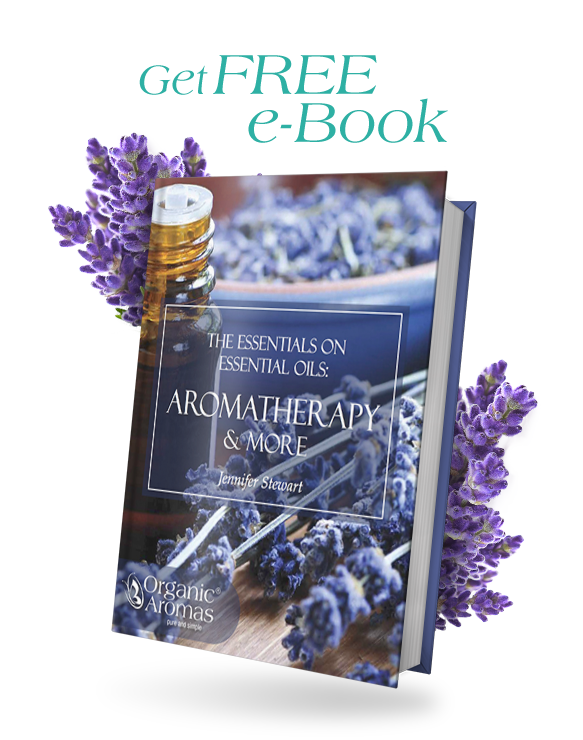
Sign Up to Get Your FREE
e-Book Here…
Potential Risks and Precautions
Despite the numerous benefits of essential oils, it’s vital to be cognizant of potential risks and adopt the necessary precautions. Always consult with a healthcare professional before using essential oils, especially if you have allergies or a history of anaphylaxis. Using high-quality, certified pure essential oils free from additives or fillers is essential to avoid adverse reactions.
When treating lupus, it is advisable to avoid or use with extreme caution certain essential oils like:
- Eucalyptus
- Thyme
- Clove
- Rosemary
These oils have the potential to trigger inflammation and irritation. Additionally, oils like cinnamon bark, fennel, and clove can modulate immune responses and should be used cautiously in autoimmune disease treatment.
Complementary Treatments for Lupus
In addition to essential oils, several complementary treatments can aid in managing lupus. For instance, vitamin D supplementation has shown potential in reducing systemic lupus erythematosus disease activity and improving inflammatory markers. Omega-3 fatty acids, commonly found in fish oil, can improve endothelial function and reduce disease activity in lupus patients. These supplements work alongside essential oils to provide a comprehensive approach to reducing inflammation and managing lupus symptoms.
Other complementary lupus treatment options include:
- N-acetyl cysteine (NAC), which can reduce oxidative stress and improve cognitive symptoms
- Curcumin, an active component of turmeric, which may help reduce proteinuria and lower blood pressure in lupus nephritis patients
- Acupuncture, which has shown promise in reducing pain and fatigue in systemic lupus erythematosus patients, although more research is needed to confirm these benefits.
Incorporating these treatments along with essential oils enables people with lupus to establish a comprehensive, holistic management plan.

Join Our Exclusive Member Club to get Big Discounts!
Wrapping Up: Essential Oils for Lupus Relief
Managing lupus can be challenging, but a combination of essential oils and complementary treatments offers a promising path to relief. Essential oils such as frankincense, lavender, chamomile, and eucalyptus provide anti-inflammatory, calming, and soothing properties that help alleviate lupus symptoms. Safe application methods, including the use of aromatherapy diffusers, topical applications, and bath oils, ensure that these oils are used effectively and safely.
Incorporating complementary treatments like vitamin D, omega-3 fatty acids, NAC, curcumin, and acupuncture can further enhance the holistic approach to managing lupus. By leveraging the benefits of both essential oils and other complementary treatments, people with lupus can improve their quality of life, reduce inflammation, and manage their symptoms more effectively. Always consult with healthcare professionals to tailor these treatments to your specific needs and ensure safe and effective use.
Frequently Asked Questions
Can essential oils cure lupus?
No, essential oils cannot cure lupus, but they can help manage symptoms and provide relief when used properly.
Are there any essential oils that lupus patients should avoid?
Lupus patients should avoid essential oils such as eucalyptus, thyme, clove, rosemary, cinnamon bark, and fennel as they can trigger inflammation or affect the immune response.
How should essential oils be applied to avoid skin irritation?
To avoid skin irritation, it’s important to dilute essential oils with a carrier oil before applying them and to conduct a patch test beforehand as an extra precaution.
Can essential oils be used in conjunction with other lupus treatments?
Yes, essential oils can be used alongside other lupus treatments, but it’s crucial to consult with a healthcare professional for safe and effective integration.
What are some other complementary treatments for lupus?
Consider incorporating vitamin D supplementation, omega-3 fatty acids, N-acetyl cysteine, curcumin, and acupuncture into your treatment plan for lupus to help manage symptoms and improve well-being. These complementary treatments can be beneficial for your overall health.

